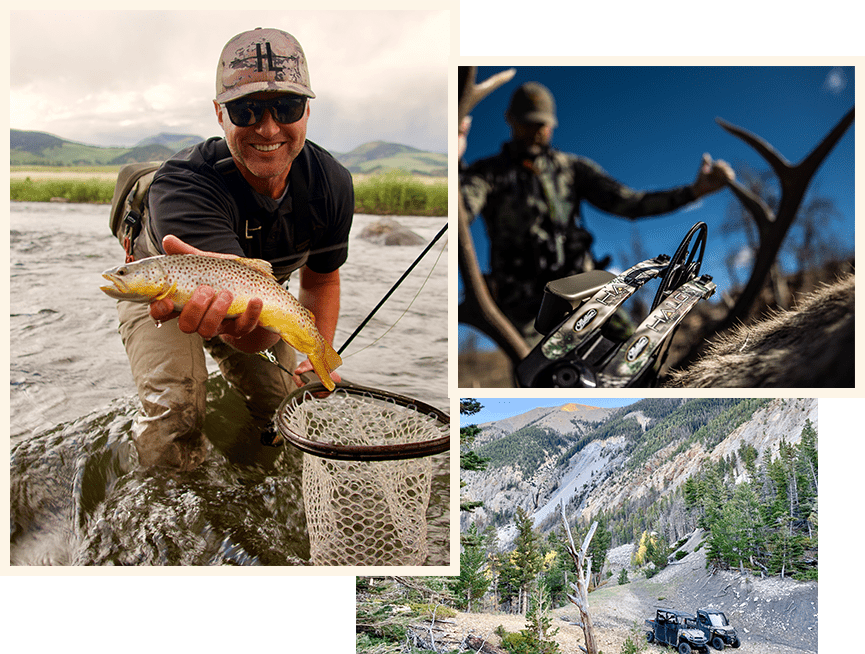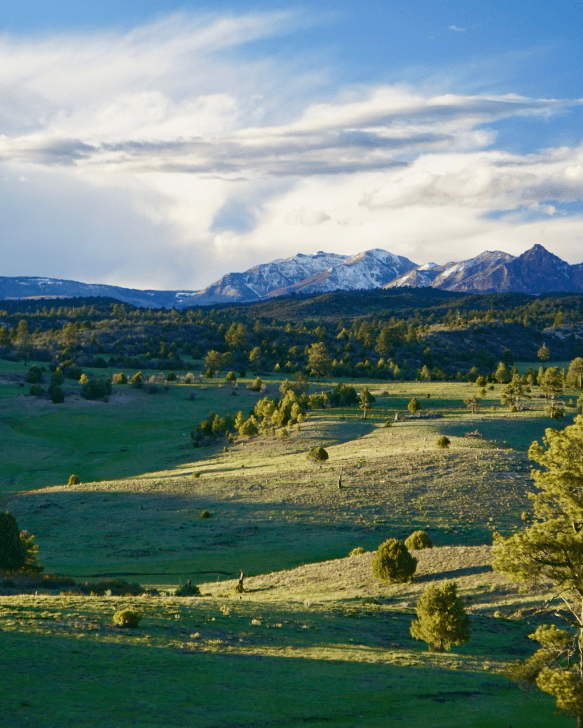Owners of significant acreage in big-game country across the West can collect a very real benefit each and every hunting season in the form of landowner hunting tags.
As owners of large swaths of ranch real estate, ranch owners contribute greatly to the overall health of big-game herds. While some believe that “landowner tags” are simply given to landowners as a benefit that comes with owning acreage, this isn’t true. Landowner tags are available to landowners or their designees, largely because of the benefits their lands provide to huntable wildlife.
In all western states, ranch real estate owners must possess enough land to qualify for landowner tags (it varies by state). Although the way tags are issued to landowners may differ greatly among states, all states recognize that landowners are essential to the health, wellness, and management of wildlife.
Well managed wildlife on private ranches is a huge benefit to the public, as wildlife in the West is migratory and utilizes both private and public land regularly. In some states, landowner tags are also transferrable. This means tags can be sold to the public for use on public and/or private land within certain hunting units. This often allows the public outstanding opportunities to hunt private ranches or units where it might take many years to draw a tag, while offering compensation to landowners for managing the wildlife that utilizes their ranches well. Simply stated, landowner tags are a benefit to landowners, as well as the general public.

Landowner tags make ranches more valuable
While the obvious benefit for ranch land owners is access to landowner tags, real estate sellers and buyers need to factor this benefit into any ranch real estate transaction. For instance, in Colorado, ranch owners with at least 160 acres are eligible to apply for landowner tags.
In Utah and Idaho, ranch land owners must possess 640 acres to be eligible. In Idaho, however, ranchers who own at least 320 acres can then purchase leftover tags from the initial landowner tag drawing. That tells you something about landowner tag availability, and the value they add to any significant piece of ranch real estate.
In Wyoming, a ranch owner must possess 160 acres of land, but they must also provide tangible benefits in the form of food, water and shelter for game herds in order to be eligible for landowner tags.

How are landowner tags allotted?
In most western states, in hunting units with a limited amount of tags available to hunters, about 15 percent of the available tags are set aside for a landowner drawing. While that’s not always the case — landowners should absolutely check with their state’s game management agency for specifics — that does boil down to a significant benefit for owners of eligible property.

Are there other limitations?
Just owning enough land to be eligible for a landowner drawing or preference program doesn’t automatically qualify a ranch land owner for a state’s landowner preference program. For instance, in New Mexico, the process can be a bit complicated. Landowner “authorizations” are issued to landowners on a case-by-case basis. These authorizations have real value — they can be sold by landowners and purchased by hunters.
In most states, however, landowner tags can’t be sold or transferred, and in Montana, for instance, landowners who might be eligible for an elk landowner tag because they own the requisite 640 acres must still be residents of the state to qualify.
Again, ranch real estate owners and potential buyers should check with state fish and game management agencies before considering landowner tags in any real estate transaction.

The bottom line
While landowner appreciation programs that allow landowner hunting tag preferences are different in every state, these programs add value to ranch real estate. Landowner drawings offer better odds than drawings available to the public, and transferable tags can be utilized by all hunters, not just landowners.
That said, there are requirements that need to be considered, including residency requirements and acreage considerations. Also, it helps if ranch owners make investments in the health of the big game herds that use private land, even if it’s just a few months out of the year.
Regardless, landowner tags and access to them add value to ranch property, and can be a significant factor in any real estate listing.


